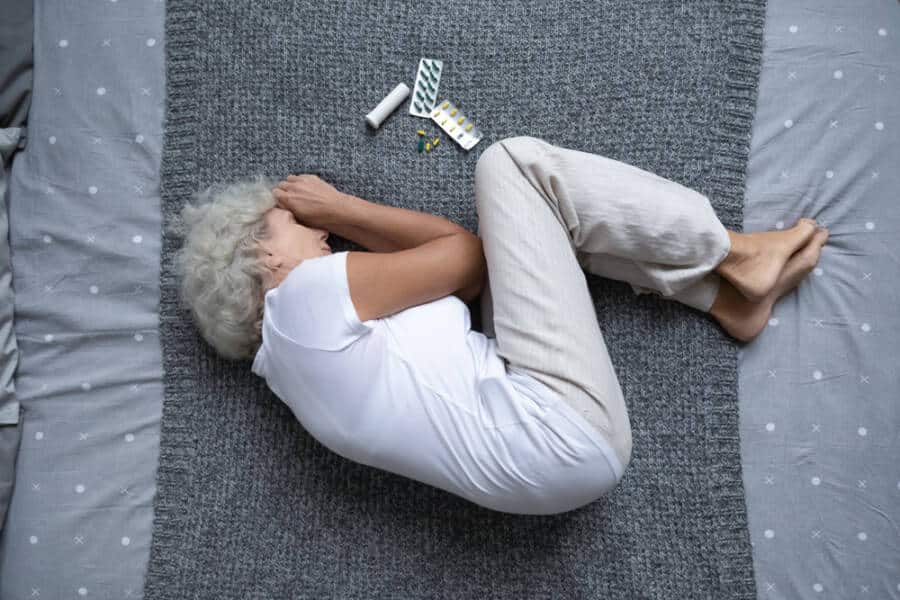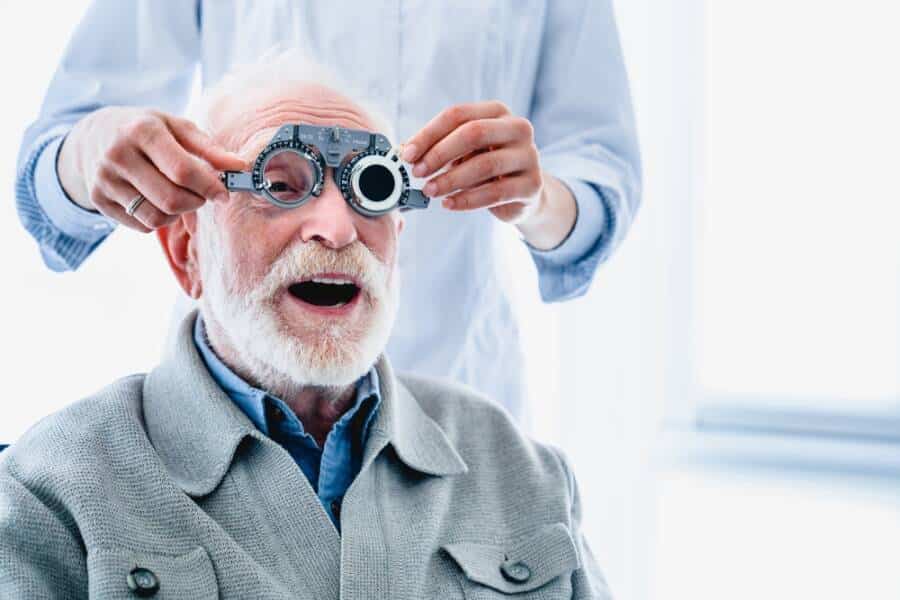Are You Experiencing Serious Sleep Problems? It May Be Dementia!
When should you worry about your sleeping schedule? In this article, you’ll find all you need to know about dementia and how the health issue is linked to sleeping problems.
People with dementia usually have sleeping problems and, as you already know, good sleep is essential for good health. Adults need around 7 to 9 hours of sleep per night, but the specific number may vary, depending on people’s age and lifestyle. Good sleep is important for all of us and helps our immune system to correctly function. Also, after a restful night, we can think more clearly, keep up with everyday tasks, and stay productive. Sleep also puts the body under less stress and can help prevent falls or other dangerous accidents.
People with dementia often experience sleep problems and end up sleeping more during the day. Over time, dementia symptoms can get worse and may become very difficult to cope with if a sleeping schedule is not strictly respected. So, a person with dementia needs good and regular sleep to stay well and safe.

8 Early signs of dementia you shouldn’t ignore:
1. Memory loss
If you keep forgetting recently learned information you are most likely dealing with an early sign of dementia. Forgetting things is not normal at all if it happens repeatedly over small things. Forgetting dates and asking the same question over and over again but remembering them later should worry you. In case you experience unexpected memory loss over daily tasks, make sure you talk to your doctor as soon as possible.
2. Challenges in solving problems
Are problems seeming more and more challenging? It might be if your brain is not properly working. Dementia patients might find it difficult to follow a plan and solve a task, even though it’s a simple one. Challenges in solving problems also come with trouble concentrating and the need for extra time for things patients used to do easily before.
3. Difficulty completing daily tasks
For people with Alzheimer’s and dementia is very hard to complete daily tasks and might have trouble remembering locations and even familiar names. Remember that the lack of sleep contributes a lot and worsens all these symptoms, which is why you should pay attention to the changes occurring in your body and don’t hesitate to speak to a specialist.

4. Confusion
Can’t keep up with the season or passage of time? It’s also a sign of dementia that is getting worse if you are not doing anything to stop it. First, you should take care of your sleep and establish a schedule. Seems impossible? It would be best if you will make an appointment for a check-up with your doctor. A correct prescripted treatment should help you feel better.
5. Problems in speaking or writing
Feeling lost while trying to follow a conversation isn’t normal and if it happens to you, make sure you speak about it. Keeping these kinds of symptoms to yourself will not help you at all. You need help and shouldn’t be ashamed to ask for it.
People with dementia may struggle with vocabulary, for example, they may call a “watch” a “hand-clock”.
6. Decreased judgement
If you experience and observe changes in judgment or decision-making you should immediately talk to a professional. Even though it’s still considered an early sign, it’s more dangerous than simply forgetting a location or a name. It can be amplified if you are not resting well and not getting enough hours of sleep.
7. Changes in mood
All the patients dealing with dementia are experiencing quick mood changes. In just a minute, they can become angry, confused, depressed, or anxious. They might get easily upset if their loved ones are not around. When you are dealing with a mental problem, the support that comes from your family, is by far, the most important one. Without feeling understood the anxiety and depression can become worse and worse and it will be hard to maintain a balanced and happy lifestyle
Dementia is a condition that needs a lot of care and unfortunately, it’s irreversible. So, in case you have it and discover it in the early stages, you need to properly take care of yourself. If you do so, the developing process will significantly slow down, but will never disappear.
8. Withdrawal from social activities
Are you feeling always sleepy and tired of social interaction? Is it harder and harder to keep up with daily tasks and solving unexpected problems seem impossible? Unfortunately, all of these symptoms indicate a serious issue. Spending time alone and not feeling the need for social activities is not normal. All of us need some breaks every now and then, but avoiding meeting people (sometimes even family members) and isolating ourselves is not good for our mental health and is making everything worse.

Sleep disorders and dementia
Insomnia
Did you know that when you do not sleep well, parts of your body change? The most interesting thing is that these parts are related to Alzheimer’s disease. Over the years, multiple researches have shown you are more likely to develop dementia if you are dealing with insomnia.
Obstructive sleep apnea
If you have OSA, the chances of developing mental problems are very high. For example, in the case of obstructive sleep apnea, the muscles from your throat relax while you sleep, you can’t sleep very well and your brain can’t get enough air. This health problem is called hypoxia. Here are the things you can experience if you are dealing with it:
- problems staying focused
- trouble making decision
- slower motor movements
- getting dementia
- other health conditions, such as stroke, diabetes, and high blood pressure
Circadian rhythm problems
People with mental health issues often have shifts in their sleep-wake cycle, meaning that they feel sleepy during the day and never really sleep during the night.
REM behavior disorder
During REM sleep, our muscles are paralyzed, but with RBD your muscles move and you may wake up when this happens. You are more likely to have REM behavior disorder if you have a disorder like Parkinson’s disease or dementia.
Sleep time and Dementia
There is a strong connection between sleep and cognitive decline, meaning that problems can appear if you sleep whether too little or too much. However, a lack of sleep is more likely to cause dementia. Research has shown that short sleep (less than 7 hours) raises your levels of beta-amyloid and tau, which are protein linked to Alzheimer’s disease.
Even though it’s believed that long sleep is not good either, the causes why it’s linked to dementia are not clear enough.
If you want to learn more about dementia and its challenges, you should definitely check out a book. It’s called: Living in the Moment: A Guide to Overcoming Challenges and Finding Moments of Joy in Alzheimer’s Disease and Other Dementias. The book can be found on Amazon and is really helpful for both patients and caregivers.
Were you recently diagnosed? Or do you think you might have early signs of dementia? You should remain calm and take everything step by step. You will get used to it and things will also get easier. In case you don’t have a clear diagnosis, see your doctor ASAP. Knowing exactly what your situation is, will help you feel better and see what the problem really is. In the case of dementia, the sooner you discover it, the better, since you can significantly slow down its development. Write us about your entire experience in the comment section found below.
Are you interested in learning more about this topic? You should also read: 10 Subtle Signs of Dementia Every Retiree Should Know.












